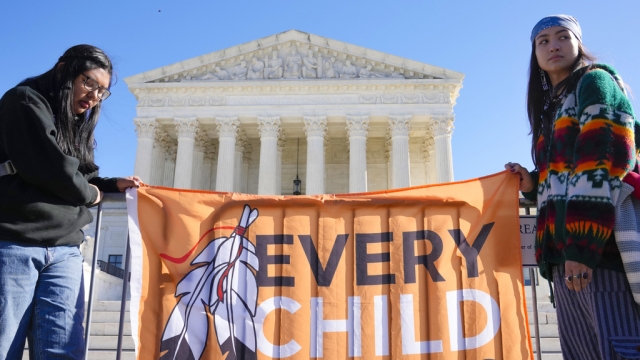The United States Supreme Court ruled Thursday to uphold a child welfare law that protects Native American children from being removed from tribal communities for adoption or fostering. The ruling in Haaland v. Brackeen rejects an attack from Republican-led states that claimed the law was based on race and should be struck down.
It's considered a win for tribal communities, who said the 1978 Indian Child Welfare Act was passed to undo the harm of policies that stripped Native children of their language, culture and ties to their community. These policies continued in the 1950s and '60s when the Bureau of Indian Affairs sponsored the Indian Adoption Project that attempted to assimilate Native children into White culture.
SEE MORE: Supreme Court to issue opinions on race, student loans and more soon
One press release from the agency in 1964 repeated a racist trope while encouraging and celebrating removal of Native children from their communities.
"One little, two little, three little Indians — and 206 more — are brightening the homes and lives of 172 American families, mostly non-Indians, who have taken the Indian waifs as their own," the press release read.
Officials from The National Indian Child Welfare Association claimed large, out-of-home placements of Native children were done in part because they came from impoverished communities, which state agencies classified as "neglect."
The ruling by the Supreme Court will keep the law in place and require states to place Native children with extended members of their family, their tribe or another Native American family.
Trending stories at Scrippsnews.com




